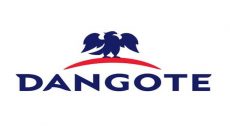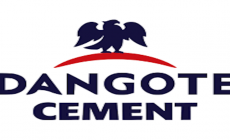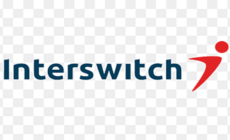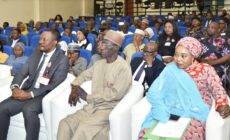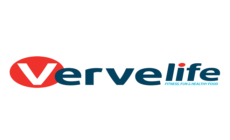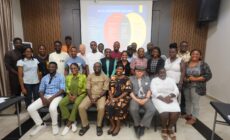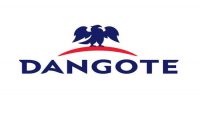You’re a parent; you’ve left your three teenage kids alone in your semi-duplex and
have gone on a business trip to Abuja with your husband. You co-own a fast-rising
marketing company with him, and this trip is to land a big client at the Presidential
Villa. He requires both your presence. The trip is for a full week. Your kids are grown,
and do not need a nanny- the last one’s ten.
Trip goes fine, client is bagged, you return, but you do not return to your home; no,
you return to what used to be your home. You return to disorganization, lack of
coordination, oil spills, water spills, dust, cobwebs, broken furniture, and kids who all
seem to have caught a cold.
You’re the mum, and you switch to ‘super
housekeeper mommy mode’. Dad helps out too.
Step one – scold and warn and scream and shout. Step two – gather all cleaning
equipment. Step three – remove the perpetrators of the mess from the scene.
Swear never to leave them all alone on their own again. Step four – return the house to
how it was before you left it….and then the kids come back and tell you that if you
do not return their freedom, they would have you removed as mother in their lives,
and take legal action against you. They would drag your name all over twitter and
make rubbish of your credibility. They would insist that you even give them more
freedom than they had before. They call you a tyrant with greedy and controlling
inclinations.
If you were mother to these kids, what would you do?
This short story more than exemplifies the last three months at the Nigeria Inter-Bank
Settlement System Plc, a company charged to initiate and develop integrated
nationwide networks for electronic and paperless payments, funds transfer and
settlement of transactions. This basically means that the NIBSS is the nervous system
across all banks and financial institutions in Nigeria. Such a heavy task to bear! Such
a mandate to be 100% perfect in every discharge of their duty. There are several
talks of lackadaisical approach to work in Nigerian federal institutions and
companies; if there was any that should absolutely not let this bad culture encroach
them, it is the NIBSS, because of how key it is to the functioning of money in Nigeria.
Alas, however, the NIBSS was not entirely immune, and slips began to show in their
internal functioning. Good thing these slips were caught quickly before they
became too noticeable by the general public, and talks and efforts to return to a
standard of excellence through a repositioning kicked off.
After a good deal of investigative journalism on my end, I have been able to piece
together a timeline of events that kicked off from these talks of repositioning (which
resulted to the allegations against the NIBSS for foul play which rocked the company
about a week ago), which I lay out in this article. I purpose to describe a timeline
alone and without bias, and without going into the he-said-she-saids of the recent
employment termination scandal.
In May 2019, the first clear step towards bringing about a new face of the NIBSS was
the appointment of Mr. Premier Oiwoh as the MD/CEO.
The board of the company
tasked him with the responsibility of repositioning the Company to place it at the
forefront of innovations that would revolutionize the Nigerian payment system. This
entailed a holistic review of operational processes and procedures as well as
resources available to the Company by Executive Management, aimed at devising
action plans that would put the Company back on track to becoming a world-class
payment infrastructure.
Like the mother with the three kids, Mr. Oiwoh’s first step was to observe and
measure. The Human Resources department was utilized effectively and all the staff
of the NIBSS were evaluated. After evaluations, a good number fell above the line,
while others fell below the line. This obviously confirmed the already-known
assessment that there was extra weight holding the company down that needed
shedding off.
One thing a CEO should never do is treat his or her employees as mere numbers or
as service-robots without emotions doing their bidding. Mr. Oiwoh and the board of
the NIBSS knew this, and they wisely took up the next steps of the clean-up with skill,
regard for due process, and a dread for the backlash of creating an atmosphere full
of feelings of disenfranchisement that may arise from wrongful/inhumane
termination from office.
This was strategy.
Yes, strategy, because, one, you must know the law and the requirements of law to
do this right; two, you must have company policy at your fingertips to execute
effectively; three, you must ensure that the gap that will be left by those leaving will
either be immediately filled up, or skilfully handled by persons who bear similar
portfolio in the company as the one fired. A lot goes into such strategy and this is the
run-down of how the NIBSS executives, lead by Mr. Oiwoh, executed theirs:
Step One – Scold and Warn and Scream and Shout: Like the mother in our story, the
intentions of the MD/CEO and the Human Resources team at the NIBSS was clear to
everyone, and the repositioning efforts were not hidden.
They had let people who had low appraisals and track-record of underperformance
know of their performance, and some of them resigned voluntarily. The question
now was how to let go of the others who didn’t, twenty-three of them to be exact.
Step Two – Gather All Cleaning Equipment: Severance packages, monies, and
payments. These were the equipment gathered to ensure that cleaning was done
accurately, and without chance for holding the company accountable for unfair
play.
According to the company’s Human Resource policy (Article 3.7.1), the Nigerian
Labour law, and the details of their employment contracts, these twenty-three, were
paid salaries in lieu of notice of termination of contract. The pension contributions in
their Retirement Savings Accounts (RSAs) were paid. The Company’s gratuity
scheme, administered as Additional Voluntary Contribution (AVC) with the pension
fund administrators of the employee’s choice obligated the total payment of
N594,000,000.00 (Five Hundred and Ninety-Four Million Naira Only) to The Twenty-
Three, which was completely paid. The unearned allowances usually paid upfront to
the middle level and senior management among the twenty-three were
accordingly recovered from the employees’ final entitlements. As a palliative even,
the Company upheld a policy that was meant for retiring staff for them – terminated
staffs – as it pertains the release of their company cars. The policy states that assets
that have been used for more than 24 months would be transferred to the exited
staff free of cost; however, assets less than 24 months may be purchased at 10% of
the original cost by the exited employee, and this was upheld. The terminated staff’s
access to National Health Insurance Programme for the unexpired period covered
by the premium already paid by NIBSS was still maintained.
Step Three – Remove the Perpetrators of the Mess from the Scene: It sounds harsh,
but yes. There is no other way to go except this. The warnings had come, the signs
were all over the place, people had resigned, you knew your fate, severance
packages had been paid into your account – again, there is no other way to go
except to take the exit – your services have been appreciated thus far, but then, to
move forward, we need to let you go. This was the NIBSS’s last point of call to clean
up house, and on August 2, 2019, it was executed. Access to the portals of the
exited Twenty-Three staff were closed and their termination letters were issued, first
by email on the 2nd of August, and then handed over to them on August 14th.
Nineteen out of the Twenty-Three exited staff returned to commute their termination
which was favourably considered by the Company Management…until they
stopped, made a complete U-turn, joined up with the Chief Risk Officer (Assistant
Vice-President) of the NIBSS who was exited too, and began a tirade of allegations
against the NIBSS and the new MD/CEO, Mr. Premier Oiwoh.
*
The NIBSS is witnessing a freshness in operations now, and it will only get better. What
is good must be done, and must be done properly. What is good for the nervous
system of inter-banking in Nigeria is absolute perfection and continuous growth and
development, internally (without threat of being pulled down by deadweight), or
externally by positioning itself to become a world-class financial service provider.
There were issues of poor governance (due process was not being followed in
arriving at management decisions – management decisions were being unilaterally
taken as EXCO meetings were not being held), palpable knowledge gaps with no
plans for organizational continuity, inadequate division of labour and skill (processes
revolved around single individuals without backups or continuity in mind), lack of
continuity infrastructure and misuse of existing ones (the development source codes
for NIBSS applications were not stored in a central environment or backed up to
allow business continuity), clear cyber-risk practices indulged in (The staff of the
Company were all using USB devices on their computers, a major cyber risk issue, at
a point), and poor attitude, lack of understanding and poor people orientation by
staff which led to several complaints from banks and stakeholders. The NIBSS truly
needed cleaning up, and at the point of writing this, they have begun stage four.
Step Four – Return the House to Beauty: There are moves to begin staff trainings,
workshops, recruitment of capable hands who fit into the refreshed company
culture, create good performance measurement systems that feed back into
company strategy, and an overall new take to management and governance.
The sky is just the starting point for the new NIBSS, and there is potential to achieve
much more. The company has shown a good example of how to really break the
moulds of nepotism and unsavoury favouritism that eats at the corporate culture in
Nigeria today. It is left for others to follow this stellar example and reach for the skies
themselves too.
Signed,
Aniene Osunde.







